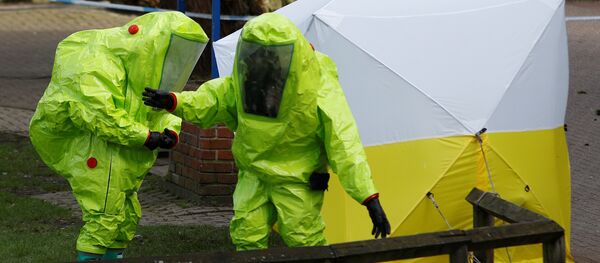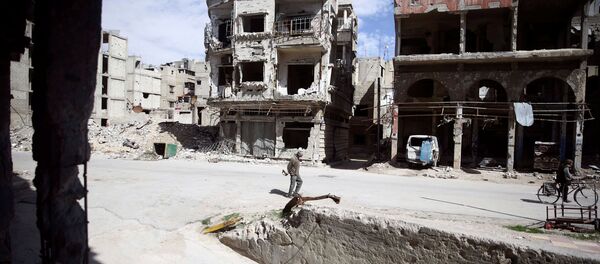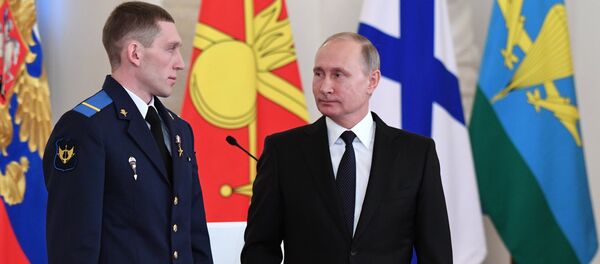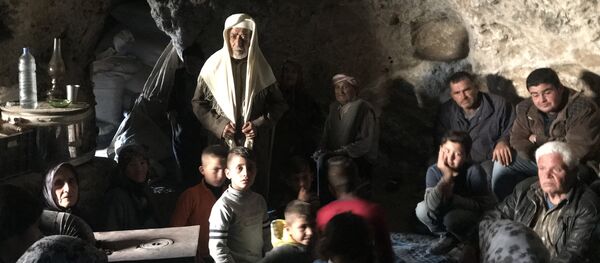Mays Issa, 36, a specialist working with persons with disabilities in Homs told Sputnik that over the past three years "life and military matters are gradually becoming better, especially after the Russian engagement to support the Syrian army," but psychological injuries weigh very heavy and are likely to stay for years to come.
"For the near future, things are still difficult and will be in the coming years because of the psychological, intellectual and material damage inflicted on all the Syrian people," Issa said. "I expect that the fear of the other will continue as well as the social isolation among the people, in addition to the difficulty of living and securing daily necessities."
Since September 2015, Russia has assisted the Syrian government — at the request of Damascus — and aided the Syrian military in the efforts to fight terrorist groups, as well as provided humanitarian aid to Syria’s residents. The United States is leading an international coalition to defeat in Syria and Iraq the Islamic State terror group (outlawed in Russia). However, the coalition’s activities are not authorized by the Syrian government or the UN Security Council.
On December 11, Russian President Vladimir Putin ordered the withdrawal of a significant part of Russia’s troops from the country only several days after he announced a "complete" victory in Syria over the Islamic State. However, Russian servicemen remained at Russia's naval facility in the city of Tartus and the Hmeimim air base.
Issa explained that most young people in Syria consider "traveling away from the country because of fear of renewed terrorism and aggression against Syria even after it has ended."
Fear in doing daily chores, such as traveling from one place to another is also a problem, Issa said. While people in Syria use public transportation in general, Issa noted, they have a constant fear of explosive devices being placed in buses, because explosions have taken place numerous times.
"We always expect foreign bombings from Israel or America, but our greatest fear is from terrorists who entering our safe areas," she said.
While Syrians have access to the international media online via social media and the Internet as well as access to local newspapers like Tishreen, Revolution, Arabism and Baath, many choose not to watch because their of being overwhelmed with and anxious about scenes of violence.
"There are people who follow the news regularly and others tired of scenes of blood, death and destruction, which cause great tension and anxiety," Issa said.
In describing everyday life of Homs residents, Issa pointed out that while she was talking with Sputnik there was no electricity.
"Life has changed a lot during the war," she said. "Before the war, a worker's salary was commensurate with the standard of living. The lowest salary before the war was $300 while the highest salary currently is $75. [Critical items] like transportation fuel and food are now available, but very expensive… while they were cheap and abundant in the past."
Issa stressed all kinds of food are available, including vegetables fruits, meat and dairy products, and also all kinds of medicines.
Issa added that residents continue to grow plants and keep animals in some villages.
"The large tracts of land that used to grow wheat, cotton and livestock are currently under the yoke of war in the areas of Deir al-Zour, Hasaka and Qamishli," she said.
Issa also noted that people are currently working in all sectors, including in agriculture, industry, trade, culture, education and banking.
"All state institutions do their work and people get their monthly salaries," she said.
As for healthcare, Issa explained that "Some hospitals stopped working, so that the pressure on other hospitals and other health centers increased, which started receiving cases of war injuries."
The international community — including Iran, Russia, and Turkey — the three Syria ceasefire guarantors — has taken a number of steps aimed at stopping the war and settling the conflict, among them organizing talks in different formats, specifically in Geneva and Astana.
United Nations High Commissioner for Refugees Filippo Grandi said on Friday that the conflict in Syria has created a massive human tragedy. The fighting has forced 5.6 million refugees into neighboring countries and driven more than 6.1 million people from their homes, the release said.








